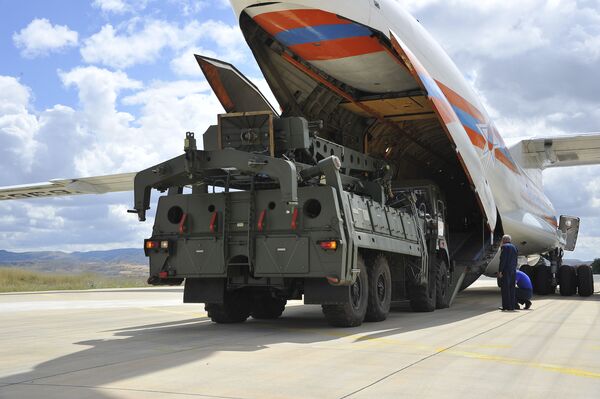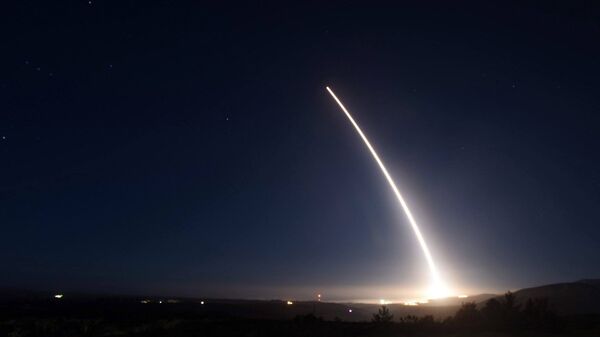Defence Secretary nominee Mark Esper has stated that in his opinion, the US will need to develop intermediate range missiles in order to counter both Russia and China, as he spoke at a Senate confirmation hearing. He further argued that focus should be put on the development of both conventional and nuclear weapons when it comes to countering Moscow.
"In my view, maintaining combat-credible conventional and nuclear forces, along with our allies, is one of the most effective deterrents against Russian aggression", he said in his written testimonies.
The US initiated the withdrawal process from the Intermediate-Range Nuclear Forces (INF) Treaty in February 2019, accusing Moscow of violating the agreement and using this as a pretext under which to ditch the accord. Russia has denied violating the agreement and reminded Washington that for years it has also had questions about American compliance with the treaty.
The Kremlin slammed the US withdrawal from the accord, arguing that it would lead to further tensions in bilateral relations, adding that Washington’s EU allies could be endangered if the US decides to deploy intermediate and short range missiles on their territory. However, the US assured that it won't be deploying nuclear missiles on European territory.
Diplomacy Not War With Iran
President Donald Trump's defence secretary nominee also shared his views on US-Iranian relations, which have recently been spiralling downwards. Esper voiced support for resolving the two countries’ differences via diplomacy, saying that Washington does "not want war with Iran".
At the same time, the nominee revealed that he is planning to carry out "Operation Sentinel", which is aimed at deterring alleged Iranian attempts to hamper navigation in the Persian Gulf.

Esper reiterated earlier US allegations that Iran had damaged a total of six tankers in two incidents in the Gulf in May and June. Tehran, however, has repeatedly denied being responsible for the attacks and slammed attempts to carry out false-flag operations to shift the blame onto the Islamic Republic. A UAE investigation concluded that a "state actor" was responsible for the "sabotage", but didn't point a finger at a specific country.
On Turkey's "Disappointing" Decision to Buy Russian S-400s
Mark Esper called Turkey's decision to buy Russian air defence systems instead of US-made ones "wrong" and "disappointing" during his testimony. He further confirmed that Ankara won't be able to acquire the F-35 jets it seeks as long as it has S-400s.
"The policy that I have communicated to my counterpart, if confirmed, [Turkey's] defence minister is that you can either have the S-400 or you can have the F-35, you cannot have both. […]Acquisition of the S-400 fundamentally undermines the capabilities of the F-35 and our ability to retain that over-match in the skies going forward", he said.
Washington has long been pressuring Ankara to abandon its S-400 deal with Russia, but the Turkish government has decided to stick to it, with the first deliveries of the missile system recently starting to arrive.
The US claims that the S-400s will be incompatible with other NATO systems and would pose a threat to the newly-developed F-35 fighter jets, as the systems could allegedly reveal the aircraft’s weaknesses to Moscow. Using this as a pretext, Washington has threatened to suspend F-35 shipments to Turkey, which heavily invested in the jet's development, and has frozen training programmes for Turkish pilots.

The US to sell Patriot missile systems to Turkey instead, which are only capable of downing enemy missiles, as opposed to S-400s that can also strike down enemy aircraft. However, Ankara turned down the offer, saying that Washington had failed to present a more lucrative offer than Russia.




